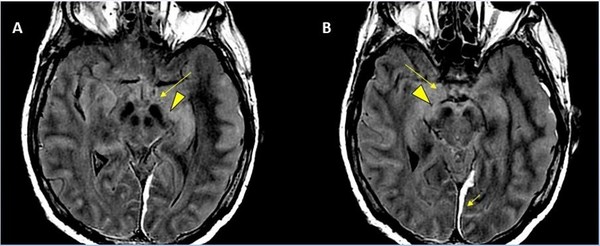CHICAGO, Ill. -- By Shim Hyun-tai/Korea Biomedical correspondent - The Radiological Society of North America (RSNA) on Monday presented an international study result that about one in 100 hospitalized Covid-19 patients is likely to develop brain complications.

On the second day of the annual RSNA meeting in the McCormick Place Convention Center in Chicago, the radiology society said hospitalized Covid-19 patients may develop various complications, including stroke, bleeding, and other potentially fatal illnesses.
“Much has been written about the overall pulmonary problems related to Covid-19, but we do not often talk about the other organs that can be affected,” said Professor Scott H. Faro, a radiology and neurology professor and director of the Division of Neuroradiology at Thomas Jefferson University. “Our study shows that central nervous system (CNS) complications represent a significant cause of morbidity and mortality in this devastating pandemic.”
Professor Faro initiated the study after discovering that existing literature on CNS complications only used a small number of hospitalized Covid-19 cases. The research team led by Faro analyzed nearly 40,000 Covid-19 patients with an average age of 66 admitted to seven university hospitals in the U.S. and four in Western Europe.
Researchers revealed that 442 acute neuroimaging findings were most likely linked to viral infection, and the overall incidence of CNS complications was 1.2 percent.
“Of all the inpatients who had imaging such as MRI or a CT scan of the brain, the exam was positive approximately 10 percent of the time,” Faro said. “The 1.2 percent incidence means that a little more than one in 100 hospitalized Covid-19 patients are going to have a brain problem of some sort.”
The most common complication was ischemic stroke with a 6.2 percent incidence, followed by intracranial hemorrhage with 3.72 percent and encephalitis with 0.47 percent.
The research team also discovered a small percentage showed complications, such as acute inflammation of the brain and spinal cord and a syndrome that mimics many of the symptoms of a stroke.
“It is important to know an accurate incidence of all the major central nervous system complications,” Faro said. “There should probably be a low threshold to order brain imaging for patients with Covid-19.”

